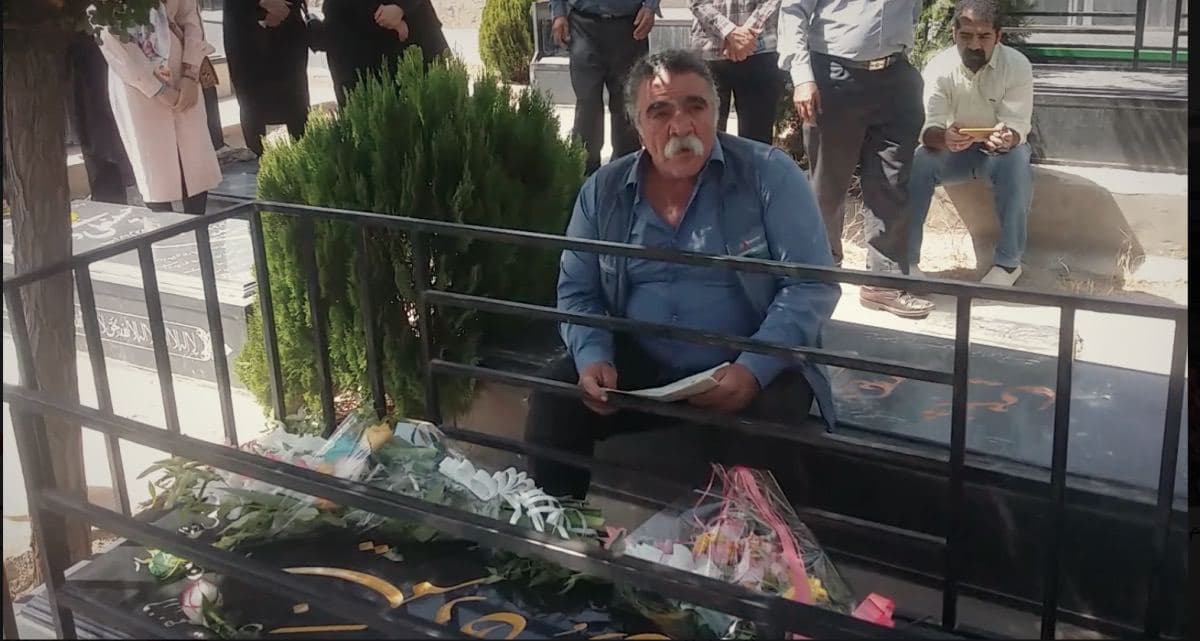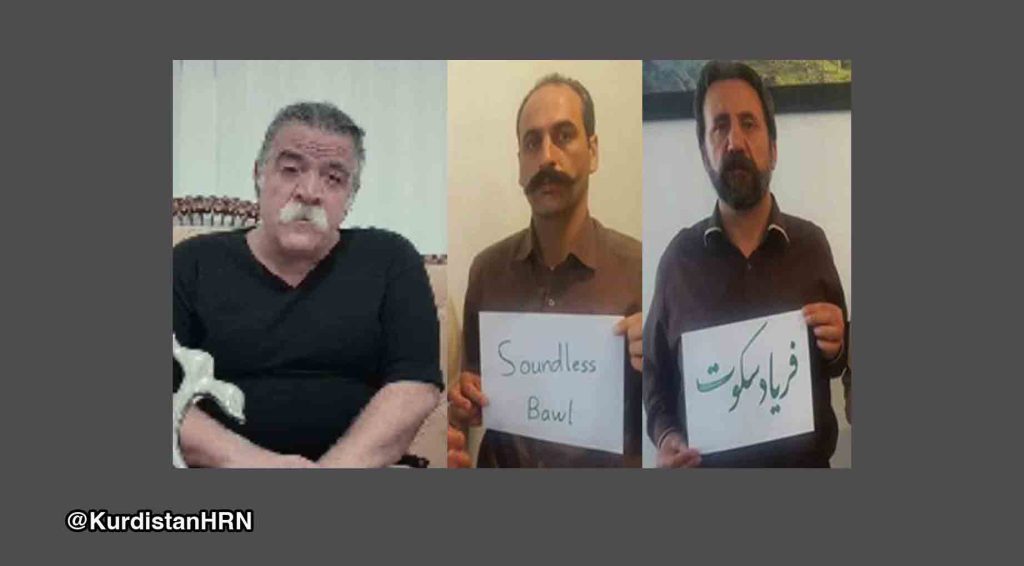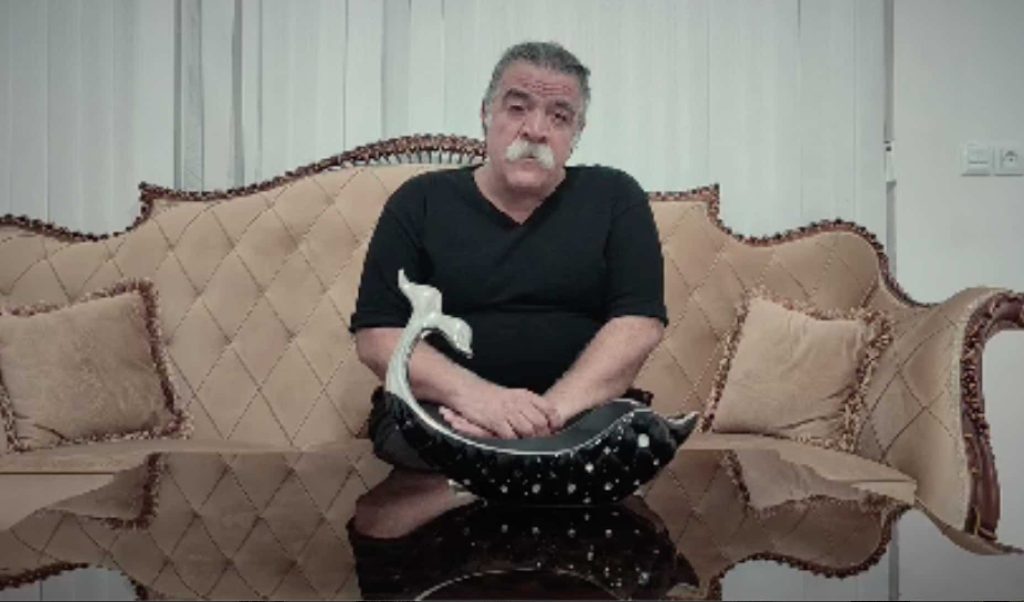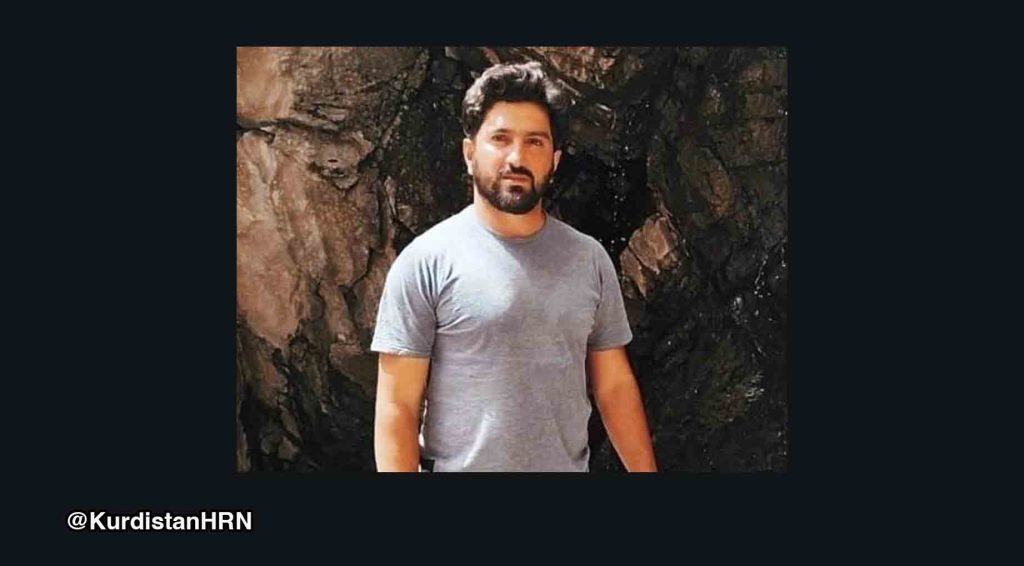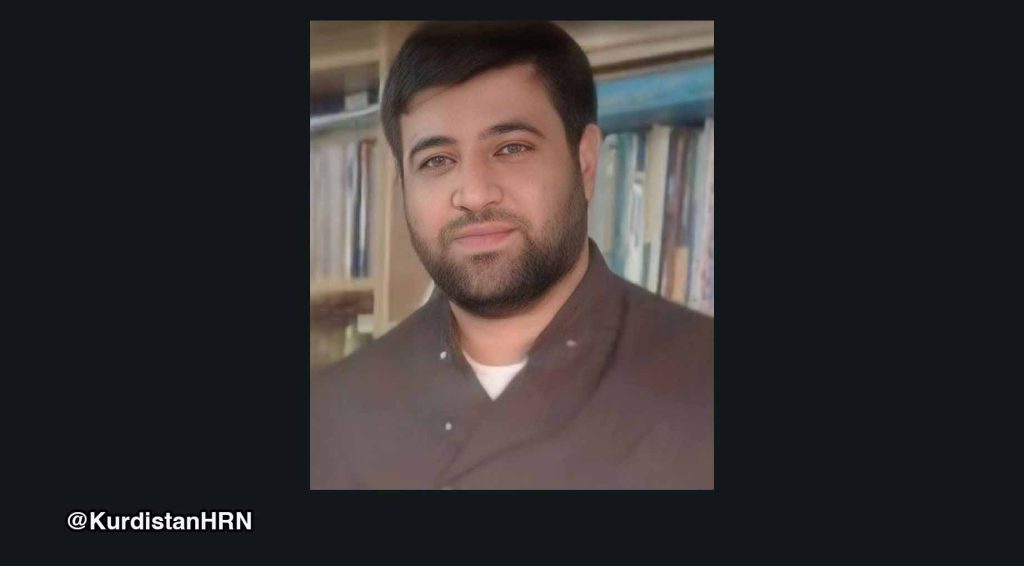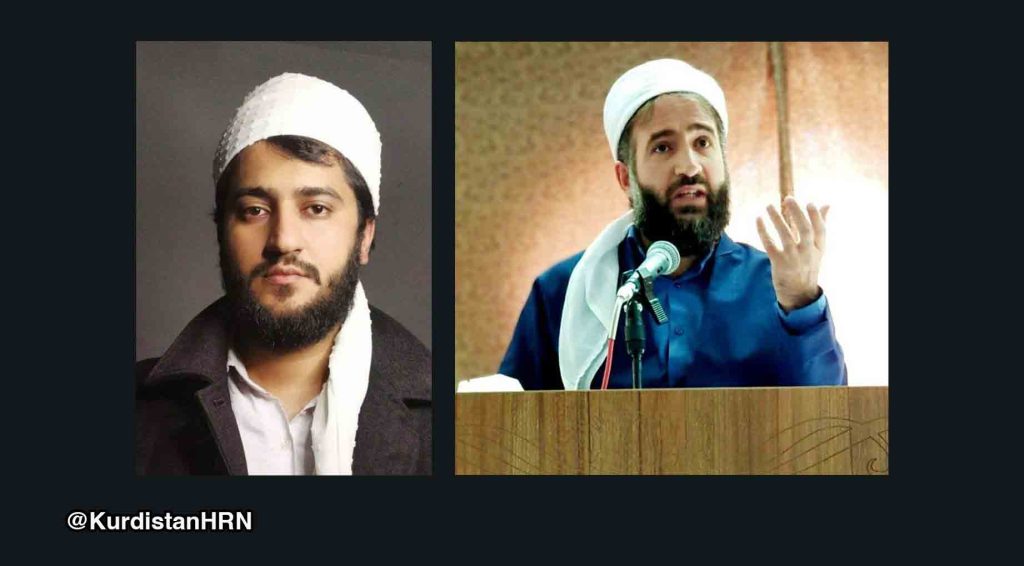The Yarsan Civil Rights Activists’ Advisory Council said in a statement that a group of its members, along with several other Yarsani activists, have gone on hunger strike yesterday for 48 hours in support of and in solidarity with Kheyrollah Haghjouyan, a detained member of the council.
Haghjouyan had gone on hunger strike since his arrest on 28 June, protesting against his detention. He continues his strike in Dizel Abad Prison in Kermanshah.
“So far, prison officials and the judiciary have not taken any action regarding the demands for the unconditional release of this Yarsani Kurdish activist, and he is still on hunger strike”, a Yarsani civil rights activist told the Kurdistan Human Rights Network (KHRN).
According to this activist, on 4 July, a group of Yarsani civil rights activists in Kermanshah and several other cities went on hunger strikes, in groups and individually, to show their support and solidarity with Kheyrollah Haghjouyan.
The activist added that Siavash Hayati, a Kurdish Yarsani political activist, met with Haghjouyan after coordinating the meeting with prison officials. According to Hayati, Haghjouyan’s morale was “high”, but he was physically “weak and dizzy” due to the hunger strike.
On 28 June, the district court of Sahneh in Kermanshah province summoned Haghjouyan and imprisoned him in Dizel Abad Prison on charges of “insulting the sanctities and officials of the Islamic Republic of Iran”.
In the court hearing, Haghjouyan was questioned and charged in connection with his political and civil activities, a source told the KHRN.
The investigator issued a bail of 500 million Iranian Tomans – nearly 20,000 USD – for the temporary release of the Yarsani activist. However, he refused this large amount of bail as he denied the charges against him, it added.
The Yarsan Civil Rights Activists’ Advisory Council stressed in a statement that criticizing the country’s political situation and criticizing government officials “could not be considered as an insult”.
Kheyrollah Haghjouyan is a prominent Kurdish Yarsani activist. In recent years, he has given speeches in various ceremonies independently or on behalf of the Yarsan Civil Rights Activists’ Advisory Council, criticising the political and economic situation of the country and especially discriminations against the Yarsani community.
Haghjouyan gave his latest speech on 5 June on the grave of Nikmard Taheri in the city of Sahneh.
Nikmard Taheri was a Kurdish civilian from Sahneh, Kermanshah, who lost his life in June 2013 due to a self-immolation protest. His death was one of the three cases of self-immolation of the followers of the Yari religion (Yarsan) that took place in June and August in Hamadan and Tehran that year.
A day before Taheri, Hassan Razavi, from Pol-e Shekasteh village in Hamadan province, set his body on fire in front of the governorate building.
Nearly two months later, Mohammad Ghanbari, from the village of Qarah Dash in Qazvin province, died in a similar self-immolation action in front of the Islamic Consultative Assembly building in Tehran.
This chain of self-immolation protests was a deadly reaction to the legal discrimination against the Yarsani people and the insult to their customs.
The forced shaving of the moustache of one of the followers of the Yari religion in Hamadan Prison was the spark that ignited the protests. The shaving of moustache is an act that is considered an insult to the believers of this religion.
Following these three people’s sorrowful self-immolations and deaths, a group of Yarsan political and civil rights activists felt the need for concerted action to protest against discrimination against the Yarsani community and forming a group to plan and pursue their demands.
Consequently, 100 Yarsan activists gathered in Kermanshah and formed the Yarsan Civil Rights Activists’ Advisory Council. They said that they had formed the council to pursue the demands of the Yarsani community in all possible, peaceful, civil ways.
Since its foundation, the Yarsan Civil Rights Activists’ Advisory Council has written several open letters to Iranian government officials, including the Supreme Leader and the President of the Islamic Republic.
The subject of all these letters was demanding the end of discrimination against the Yarsani community and recognising this religious minority. The letters have not received any official response. And the verbal promises of the officials to pursue these demands have not had any visible effect on improving the lives of these people.
Yarsani community is one of the religious minorities in Iran that is not recognized as an independent religion in the constitution. Its followers are deprived of many political and social rights.
Yarsanis mostly live in the provinces of Kermanshah, Lorestan, Hamadan, Kurdistan, Azerbaijan, Qazvin, Alborz, Tehran, Gilan, and Mazandaran. Kermanshah province is known as the main centre of this religion.
Although there are no official statistics on the number of followers of this religion, the population of Yarsanis in Iran is mentioned in various sources to be one to three million people.

